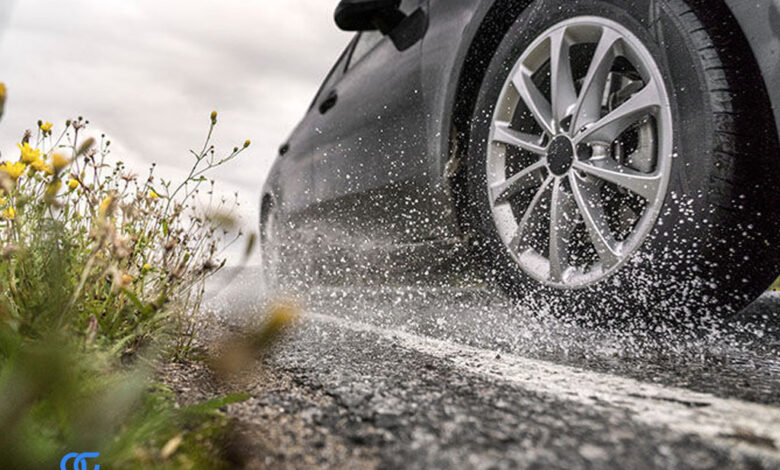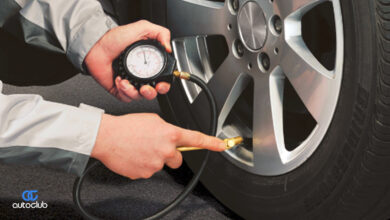How to Choose the Right Tyres for Your Car

How to Choose the Right Tyres for Your Car
Introduction
When it comes to your car’s performance, safety, and overall driving experience, choosing the right tyres is of paramount importance. Your vehicle’s tyres are the only point of contact with the road, affecting everything from handling and braking to fuel efficiency and comfort. In this article, we’ll walk you through the essential steps and considerations in selecting the perfect set of tyres for your car.
Understanding the Importance of Tyres
Your car’s tyres play a crucial role in ensuring your safety and comfort while driving. They are responsible for:
- Traction: Good tyres provide the grip needed for effective braking and acceleration, especially in adverse weather conditions.
- Handling: The right tyres enhance your car’s stability and cornering capabilities.
- Fuel Efficiency: Properly chosen tyres can contribute to better gas mileage.
- Ride Comfort: Quality tyres can significantly improve your driving experience by reducing road noise and vibrations.
- Longevity: Selecting the right tyres can extend their lifespan, saving you money in the long run.
How to Choose the Right Tyres for Your Car
The process of selecting the right tyres involves several critical factors. Let’s explore each one in detail:
Tyre Types
- Summer Tyres: Designed for warm weather, these tyres provide excellent traction on dry and wet roads. However, they are not suitable for snowy or icy conditions.
- Winter Tyres: These tyres are engineered for cold weather, offering superior traction on snow and ice. They remain soft and pliable in low temperatures.
- All-Season Tyres: A versatile option for moderate climates, these tyres perform reasonably well in various conditions but may not excel in extreme conditions.
- Performance Tyres: If you have a high-performance car, these tyres can offer enhanced grip and handling.
- SUV/Truck Tyres: Specifically designed for larger vehicles, these tyres provide stability and strength.
Tyre Size
The right tyre size is crucial for your car’s optimal performance. You can find the recommended size in your vehicle’s owner’s manual or on the driver’s side door jamb. It typically appears in a format like this: P215/65R16. Each part of this code indicates a specific aspect of the tyre’s size.

Load Rating and Speed Rating
These ratings determine the maximum load a tyre can carry and its top speed capabilities. They are important for ensuring your tyres are suitable for your car’s weight and performance capabilities.
Budget Considerations
Your budget will naturally influence your tyre selection. While it’s tempting to opt for the most affordable option, remember that investing in high-quality tyres can save you money in the long run by lasting longer and offering better performance.
Brand and Model
Reputable tyre manufacturers have a history of producing high-quality products. Research different brands and models to find the best fit for your needs.
Maintenance and Care
Regular maintenance is essential for extending the life of your tyres. Make sure to check your tyre pressure, rotate your tyres regularly, and keep an eye on the tread depth.
Frequently Asked Questions
What is the importance of tyre pressure?
Maintaining the correct tyre pressure is crucial for safety and performance. Under-inflated tyres can lead to poor handling and reduced fuel efficiency, while over-inflated tyres may result in a harsh ride and reduced traction.
When should I replace my car’s tyres?
Tyres should typically be replaced when the tread depth reaches 2/32 of an inch. However, it’s a good practice to start considering replacements when it reaches 4/32 of an inch for better safety and performance.
Can I mix different types of tyres on my car?
It’s not recommended to mix different tyre types on your vehicle. For the best performance and safety, it’s advisable to use the same type and brand of tyres on all four wheels.
How can I check my tyre’s tread depth?
You can measure your tyre’s tread depth using a simple coin test. Insert a penny into the tread with Lincoln’s head facing down. If you can see the top of his head, it’s time to replace your tyres.
Are there any eco-friendly tyre options available?
Yes, some manufacturers offer eco-friendly tyres that are designed to reduce rolling resistance, thus improving fuel efficiency. These tyres are often made with sustainable materials.
Can I repair a punctured tyre, or should I replace it?
The repairability of a punctured tyre depends on the location and size of the puncture. Small punctures in the tread area can usually be repaired, but larger punctures or damage to the sidewall may require replacement.
Conclusion
Choosing the right tyres for your car is a decision that can significantly impact your safety, comfort, and vehicle’s performance. Consider the various factors we’ve discussed, such as tyre type, size, load and speed ratings, budget, and maintenance. By making an informed choice, you can ensure a smooth and safe driving experience.
Remember that regular maintenance, checking tread depth, and staying informed about your car’s tyre needs will contribute to the longevity and performance of your tyres. So, go ahead, make the right choice, and enjoy the road with confidence.




